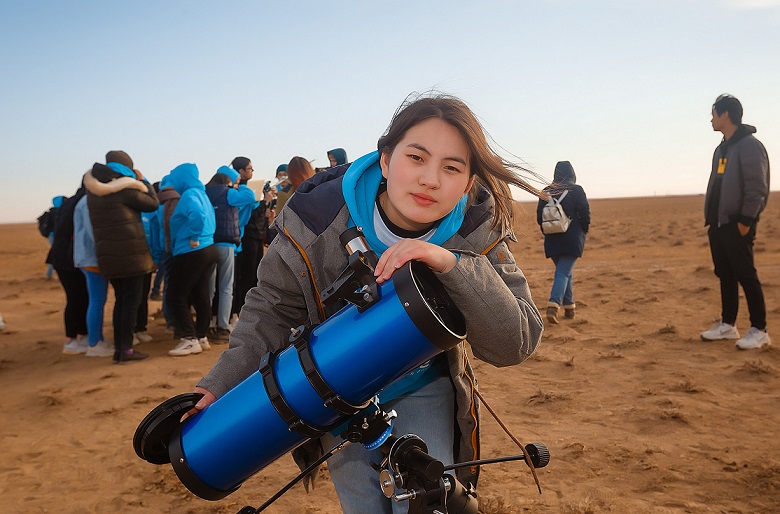Zhaniya Koshkimbayeva, 16 years old, participant of 1st phase of the educational programme for girls building and launching nanosatellites, Kazakhstan
“Girls should be able to learn anything they may want to. They should not feel any limits heading them back from the knowledge.”
These are the words of Zhaniya Koshkimbayeva, a 16-year-old girl living in Kazakhstan. Zhaniya loves science and the creation of new mechanisms and participates in an educational programme for girls building and launching nanosatellites. She has a passion around artificial intelligence and hopes to create something fascinating, charming, useful and impactful for humanity.
Of the STEM programme, Zhaniya says: “I have learned a lot and build my skills. The most important, I found an opportunity to grow. It helped me to keep on my track, by presenting the result of hard work. Despite any gender stereotypes, our team performed a delightful project that lit my enthusiasm in learning new skills in STEM.”
This year, UNICEF Kazakhstan, in collaboration with UNICEF’s Office of Innovation and UNICEF Kyrgyzstan and Uzbekistan are scaling up the ‘UniSat’ nanosatellite educational program for girls by investing in taking the educational course content into digital formats and new languages. Building girls’ knowledge and skills related to STEM and data analytics through immersive hands-on experience, inspiring more girls into the field of STEM through increased visibility to the program and through high-profile mentors.
“Don’t forget that there are no gender boundaries in science,” Zhaniya says. “Don’t be afraid to have encourage and challenge yourself, because that will help you to open new horizons, new fields to grow. And also, be brave, “open up” and share your ideas with this world. You need to be heard.”
https://www.unicef.org/innovation/stories/girls-satellites-soar-stars
https://www.unicef.org/innovation/stories/kazakhstan-nanosatellite-program

